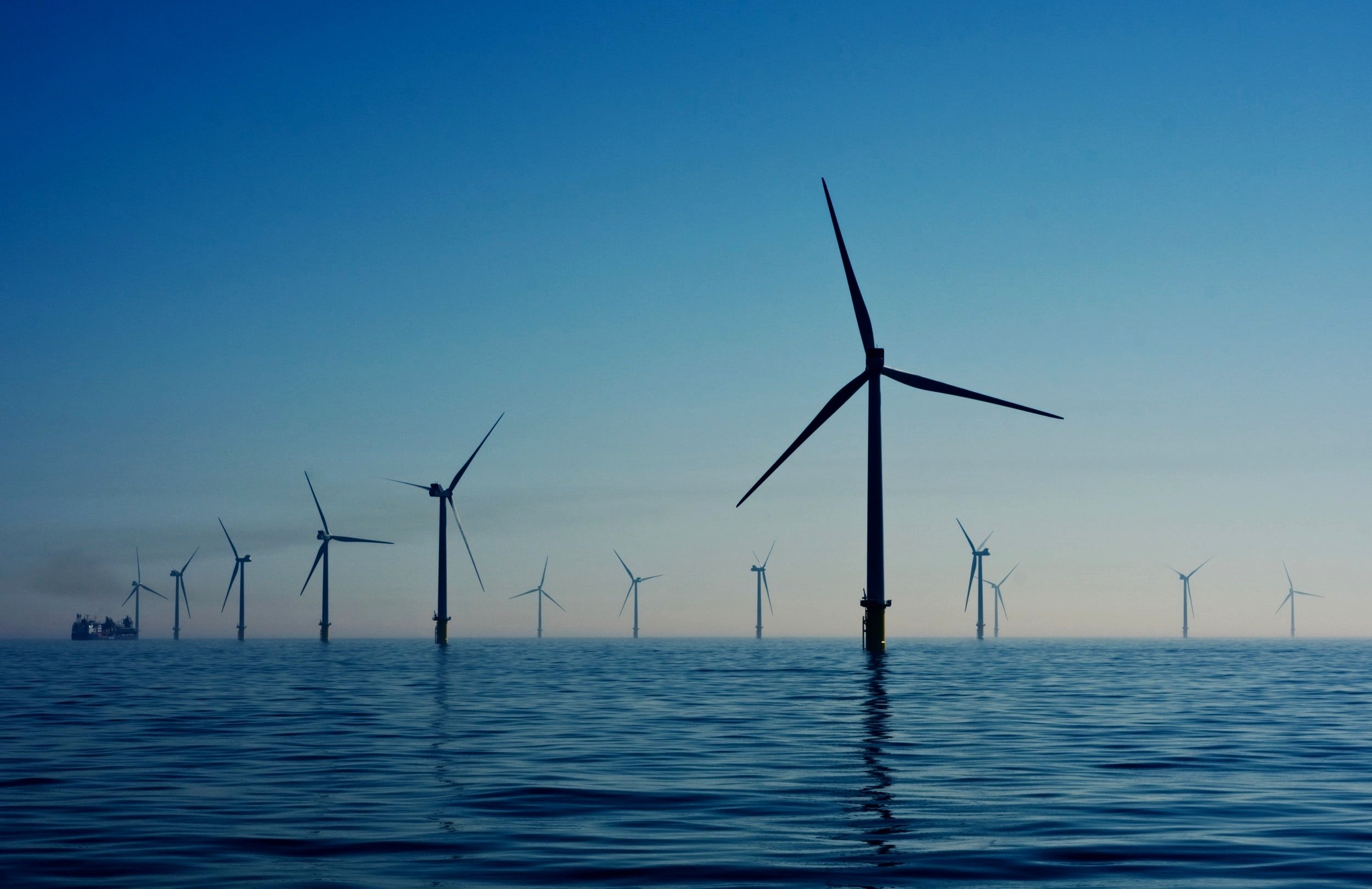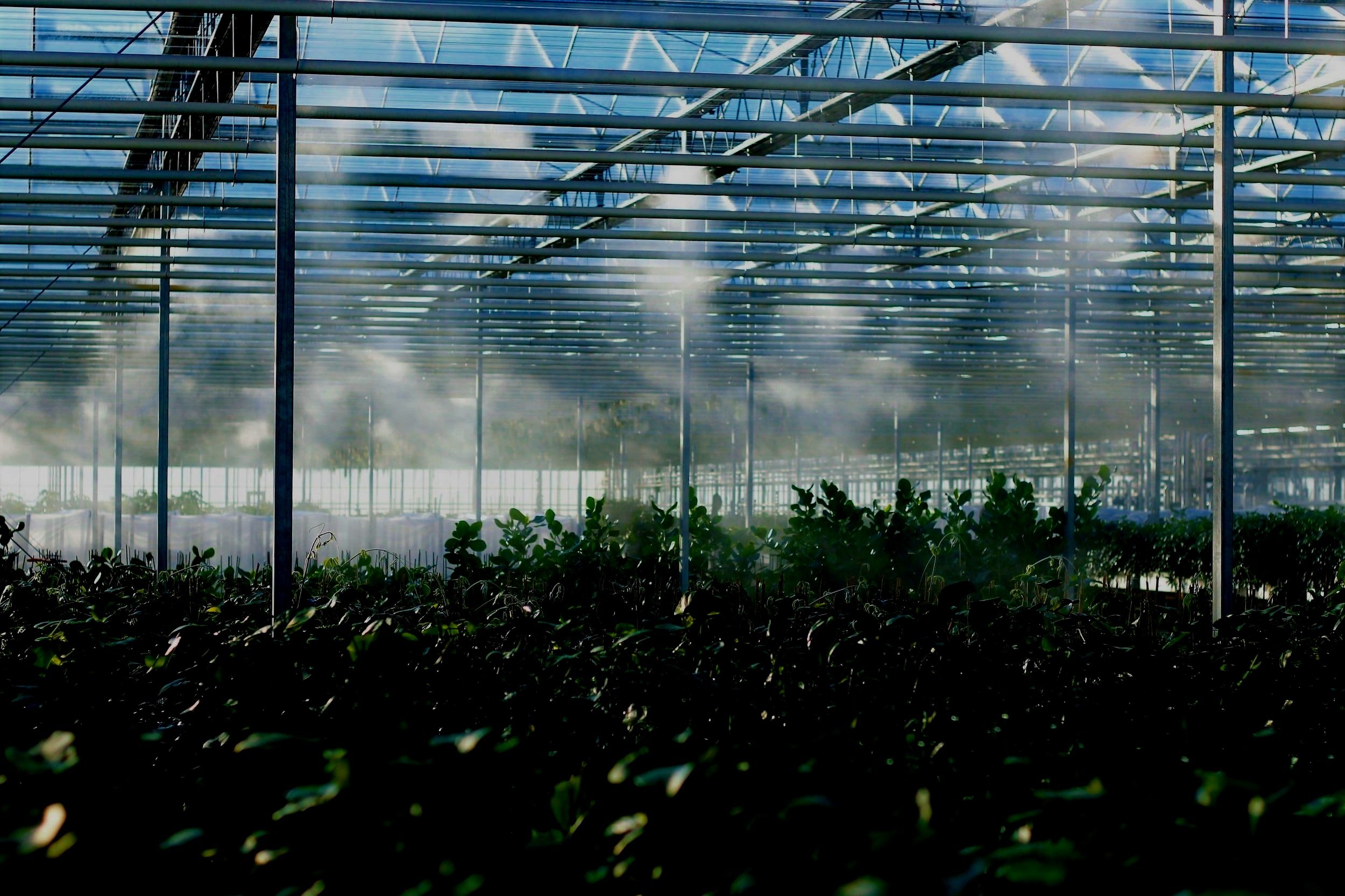Q: How do we fix Great Britain?
"Welcome to the Citizens' Wealth Fund…
Concept: Establishing the UK's first Sovereign Wealth Fund on the principles of a society of freedom and equality by placing the focus on providing basic human needs in abundance, for the prosperity of all. Creating a cost effective economy with empowered citizens, where the goal is for everyone to have the opportunity to realize their true potential in order to live a life filled with possibility, dignity and respect.”
Energy Co.
Water Co.
Food Co.
Housing Co.
Back To Basics.
SURVIVAL: The Rule of three
Air 3 minutes | Shelter 3 hours | Water 3 days | Food 3 weeks.
Without exception, every single human being that has ever existed on planet Earth, has had one thing in common. Physiological needs. These are the biological requirements for human survival.
Today, we live in a society where many people are marginalised and feel ignored, insignificant and at times invisible. We are in a state of crisis. Great Britain is consumed by crises, plural. On a daily basis we are overwhelmed by news coverage of war, climate change and the cost of living crisis.
In addition we have divisive politicians and talking heads spreading misinformation, opinions masquerading as news.
According to the UK government’s annual ‘Households below average income report 2021/2022’ there were 14.4 million people in the UK living in poverty and according to UK homeless charity Shelter there are 309,000 people in England registered as homeless, which includes 140,000 children. This is a 14% increase from the previous year.
The Problem
In the UK there has been decades of underinvestment in key national infrastructure that has lead to domestic scarcity.
The Solution
Through collective action we need to grow domestic supply at volume to meet demand and to reduce the soaring prices caused by demand driven inflation.
What do we need?
500 TWh per year
We need to build new infrastructure and upgrade the national energy grid so that we can install offshore and onshore wind turbines to 100GW capacity generating 500TWh of electricity per year, enough for every home, business and vehicle in the UK.
14 billion litres of water per day
We need to build new reservoirs, flood barriers, sewage systems, desalination plants to avoid climate related droughts and carry out maintenance on existing infrastructure to prevent water loss from leaking pipes (1 trillion litres were lost in 2022).
50 million tonnes of food per year
We need to install commercial greenhouses, ocean farms and vertical farms to ensure the UK’s food security in the face of failing global supply chains and to become a leading agricultural exporter.
5 million new homes
We need to build regional modular construction factories to manufacture new modern homes efficiently and sustainably at scale on production lines to meet the demand of a growing population and end the housing crisis that has plagued the UK since 1947.
We used to be a nation of builders and engineers.
We will be again.
imagine a society…

where we own the energy company.
Imagine if… Every time you switched the light on, that your electricity bill was contributing to your pension and your financial security in your later years.
the energy company.
objectives
The creation of a citizen owned UK energy company.
100 GW from offshore wind energy installed in the UK.
500 TWh to meet annual UK energy consumption by 2050.
£60 billion, a one time investment, in exchange for £50 billion in annual revenue thereafter.
Creation of 200,000+ new regional jobs.
Reduction of 364 million metric tons of CO2 (equivalent of the emissions generated by 77 million vehicles in one year).
power to the people.
YouGov data from 10 different polls taken between August 2019 to October 2023 illustrate that approximately 65% of the UK population strongly support bringing energy companies back into public ownership.
A one time £60 billion investment into the Installation of 7,000 14MW wind turbines (100 GW capacity) would not only generate the 500 TWh per year needed to power all UK homes, businesses and vehicles. It would also generate annual revenue streams of £50 billion+ per annum, which could then be reinvested to grow wealth for future generations to come in the UK.
We have the solutions to end the energy crisis in the UK.
imagine a society…

where we own the water company.
Imagine if… Every time you made a cup of tea, that your water bill contributed towards your child’s education.
the water company.
objectives
The creation of a citizen owned UK water company.
Ensure a continued uninterrupted supply of clean fresh drinking water is available for all UK citizens.
£10 billion one time investment in exchange for £5 billion annual revenue.
Construction of 40 coastal desalination plants to ensure a continued supply of clean drinking water.
Investigate mining saline water (biproduct of desalination) for valuable minerals such as Lithium (Li) and Phosphorus (P) with a potential market value £1 trillion+.
Gain control of the water supply.
The global population in 2022 reached 8 billion people. By 2050 it is predicted to reach 10 billion people. As the global population increases the availability of clean drinking water from freshwater sources will decrease.
In 1989 the UK Government completed the privatisation of the ten regional water authorities (RWA) in England and Wales responsible for the provision of water and wastewater services in England and Wales. Since 1990 no new reservoirs have been built. To keep up with demand the UK needs to build 30 new reservoirs. There are currently two active projects.
In addition due to climate change and some of the hottest summers on record over the last decade the groundwater and freshwater supply in the UK especially in large cities are forecast to be at risk of drought in the coming decades that could cost £300m per day just in the South East.
We have the solutions to avoid a water crisis in the UK.
imagine a society…

where we own the food company.
Imagine if… We utilised modern agricultural techniques, to sustainably increase harvest yields of fruit and vegetables to feed a growing global population.
the food company.
objectives
The creation of a citizen owned UK food company.
The UK to become self-sufficient in its food production.
£10 billion one time investment in exchange for £45 billion annual revenue.
Construction of regional high-tech greenhouses to provide local produce.
Creation of 20,000 ocean farms each 20acres in size, growing kelp seaweed and shellfish to: drawdown carbon, purify our coastal waters, replenish the fisheries and restore coastal economies.
Conversion of abandoned coal mines into aeroponic/hydroponic regional vertical farms to provide local produce.
Become a world leader in exporting of agricultural goods similar to The Netherlands who exported £86 billion of agricultural goods in 2021.
Become self-sufficient in food production.
The UK current self-sufficiency of food production is approximately 54% with the other 46% being imported. This is both expensive and a national security risk. As mentioned above the global population in 2050 is predicted to reach 10 billion people. This will put enormous pressure on the global supply chain to provide food for all nations. However, there are solutions.
The Netherlands, a country 1/5 the size of the UK, has dedicated the past two decades researching and developing modern and highly efficient methods of food production by building an array of high-tech greenhouses to grow around the clock in all seasons using less fertilizers, water and square footage but produce higher yields. Growing in a single acre what it would take 10 acres of traditional dirt farming to achieve.
We have the solutions to end the food crisis in the UK.
imagine a society…

where we own the construction company.
Imagine if… New homes were rolling off production lines made in regional factories at prices people could actually afford to pay.
the construction company.
objectives
The creation of a citizen owned UK construction company.
Construction of 150 regional factories to build 5 million new homes.
£20 billion one time investment in exchange for £150 billion annual revenue.
Create 100,000+ new jobs.
Creation of regional modular construction academies for thousands of apprenticeships.
Build an affordable supply of new homes.
In 1980 house prices in the UK were 3 times the average annual salary.
In 2022 house prices in the UK were 9.1 times the average annual salary.
In 1980 251,820 new homes were built in the UK. In 2022 175,390 new homes were built in the UK.
There has been a 30% to 40% decrease in new homes built from 1980 to 2022. In contrast there has been a 20% increase in UK population between 1980 to 2022 (56,326,328 to 67,736,802).
It is clear that UK house prices are driven by high demand and low supply. Where there is high demand the market must answer.
We have the solutions to end the housing crisis in the UK.
imagine a society…

CWF: Citizens’ Wealth Fund.
Investing in a better tomorrow.
£100 Billion Investment Plan.
Energy.
£60 Billion Investment
A plan to install 100GW of offshore wind energy with the capacity to generate 500TWh per year. Enough renewable energy to power millions of homes, businesses and vehicles, whilst providing thousands of new jobs, financial security, energy independence & sustainability at home here in the UK.
£100 Billion Annual Revenue
Water.
£10 Billion Investment
A plan to build 50 new reservoirs, wetlands and construct coastal desalination plants to convert seawater into fresh drinking water to maintain healthy levels of surface water and groundwater in order to guarantee a continued water supply, come rain or come shine, to the 30 million UK homes.
£5 Billion Annual Revenue
Food.
£10 Billion Investment
A plan to install advanced high tech commercial greenhouses, vertical aeroponic & hydroponic farms and regenerative ocean farms to ensure the UK has a self-sufficient food supply able to feed a growing population and to become a global leader in the export of agricultural goods without further degradation to UK soil.
£45 Billion Annual Revenue
Housing.
£20 Billion Investment
A plan to construct 150 purpose built regional factories to prefabricate new modular homes, offices, schools and hospitals ready to be delivered directly to site. Creating 100,000 new jobs whilst building 5 Million new affordable homes by 2040 to ensure that every UK citizen has the opportunity of becoming a home owner.
£100 Billion Annual Revenue
CWF: Citizens’ Wealth Fund.
£250 Billion Annual Revenue.
Imagine a society, where all UK citizens’ are shareholders in the nations infrastructure.
CWF: £100 Billion Investment Plan in UK Infrastructure owned by UK Citizens.
Energy £60 Billion: Installation of 100 GW Capacity / 500 TWh per year from domestic offshore wind to generate enough clean electricity to power all UK homes, businesses and vehicles. Reclaiming £100 billion in annual revenue to be reinvested into upgrading the national grid and emerging energy infrastructure such as Nuclear Gen III and Green Hydrogen.
Food £10 Billion: Investment in the installation of advanced commercial greenhouses, vertical farms and regenerative oceans farms to ensure 100% self-sufficiency in food provision in the UK whilst becoming a world leading providing of food and agricultural goods to the global supply chain exporting £40 Billion per year in goods and services, as the global population grows in the coming decades.
Housing £20 Billion: A major investment to put an end the UK’s Housing Crisis by building 150 purpose built regional factories to prefabricate new 5 million new affordable modular homes ready to be delivered directly to site. Providing everyone the opportunity of owning their own home and reassuring them of their long term shelter and security.
Water £10 Billion: Ensure the UK’s continuity of water security as demand increases with a growing population by building 50 new reservoirs, coastal desalination plants and wetlands to maintain healthy levels of clean drinking water from groundwater & surface water, to fill new reservoirs with the aim to prevent extreme droughts and flooding.
Funding a fund???
The idea is for an investment to be made via a transfer payment from HM Treasury back to the UK Taxpayer into a wealth fund for the purpose of creating Citizen Owned Enterprises (COEs) with a focus on providing the domestic supply of Energy, Water, Food and Construction. A onetime capital investment of £100 Billion over 5 years into critical infrastructure to generate wealth for all UK Citizens’ for future generations to come.
Whilst £100 billion is a large amount of public expenditure, it isn’t and here’s why:
Investment Vs Expenditure: First of all, it would be a £100 billion investment and not £100 billion worth of expenditure. Public Expenditure entails the utilization of tax revenues collected by HMRC to cover the costs incurred by the nation. Investment, on the other hand, refers to the allocation of funds with the expectation of generating a return or profit in the future. Investments are typically made with the intention of growing wealth or achieving specific financial goals.
Over a 5 year period this equates to £298.50 per person per year or £24.88 per month to reclaim annual revenues worth £3,731.34 per person.
*One-off 5 Year Investment: £100 billion / 67 million people / 5 years = £298.50 per person.
*Annual Revenue: £250 billion / 67 million people = £3,731.34 per person per year.
Multiplier Effect: The multiplier effect is an economic concept that illustrates how an initial injection of money into an economy can have a broader impact by generating additional economic activity. In this context, the injection of £100 billion into national projects refers to a significant financial commitment by the government and the CWF to fund various initiatives, such as infrastructure development.
Creation of new jobs: Both inland and around the coast, the green industrial revolution will bring an economic boom nationwide, enhancing the overall quality of life for both residents and visitors. It can lead to more sustainable and resilient coastal communities while contributing to the nation's economic growth and prosperity.
The investment of £100 billion would create four businesses; 1.) Renewable energy, 2.) Water utilities, 3.) Food production, 4.) Construction, to collectively generate £250 billion in annual revenue and £140 billion in annual profits to be place into long term investments on behalf of all UK citizens and future generations to come.
The objective of the CWF is to grow the fund to £5 trillion+ AUM (Assets Under Management) by 2050 with the purpose of funding Education, Healthcare and Private Pensions to alleviate the burden on the taxpayer and state borrowing, allowing the HM Treasury to repay the UK’s national debt.
Your questions answered
-
A sovereign wealth fund, sovereign investment fund, or social wealth fund is a state-owned investment fund that invests in real and financial asset classes such as stocks, bonds, real estate, precious metals, or in alternative investments such as private equity fund or hedge funds. Sovereign wealth funds invest globally.
-
Basic Human Needs also known as Physiological needs - these are biological requirements for Human survival, e.g. air, food, drink, shelter, clothing, warmth, sex, sleep. If these needs are not satisfied the human body cannot function optimally.
-
Definition: The amount of money that a person or family needs to live.
The amount of money that a person or family needs to buy food, housing, and other basic things.
The amount of money that a person or family needs to afford their basic human needs.
-
The three E’s.
Energy Security.
Environmental Impact.
Economic Growth.
In addition a domestic energy company would be a major driver of Job creation.
In 2022 the annual revenue for energy for homes and fuel for all motorists was £100 billion.
This is likely to increase to £120 billion by 2050 due to population increase and demand for electricity.
-
Clean drinking water is the cradle of civilization and should be protected at all costs. Without water a human being will only survive for 3 days. Therefore our water supply is a matter of national security and should not be taken for granted.
In 1980’s England and Wales the UK Government privatised the Regional Water Authorities (RWA).
In 2022, there were more than 384,000 discharges of raw sewage into English and Welsh rivers and coastal seas by private water utility companies.
By 2040, due to climate change the UK will continue to have hotter and drier summers with record low rainfall year on year. Running parallel to this is a predicted population increase in the UK from 67 million to 75 million people leading to severe droughts, especially in major cities where populations are expected to reach 11 million.
Escaping the jaws of death: ensuring enough water in 2050 - GOV.UK (www.gov.uk)
Since privatisation of the water in England and Wales in 1989, there have been exactly ZERO new reservoirs built in England and Wales. According to United Utilities
‘Since privatisation we haven't built any new reservoirs as we haven't needed to. Every 5 years, we carry out analysis on how much water we need for the future. We measure this for over 100 years, taking into consideration how our population is growing and climate change.’
gm-county-summary---nov-2023.pdf (unitedutilities.com)
Copyright © United Utilities Water Limited 2021
-
The UK is the sixth largest economy in the world however 14.4 million of its citizens live in poverty.
Since 2004 Food Banks have been on the rise in the UK. Today 2 million families use food banks every year.
In 2022/23, the Trussell Trust supplied 3 million three-day emergency food parcels.
The UK imports over 50% of it’s food meaning that its level of food security is fragile. In the event that the UK is faced with a collapse in its global supply chain it will not be a strong position to feed its citizens.
-
Through various schemes implemented by a succession of UK Government's ‘RIGHT TO BUY, BUY TO LET and HELP TO BUY’, as well as a failures by the construction industry to keep up with increasing demand, suppressing the supply of new homes built each year in the UK, and finally due to population increases, there is a Housing Crisis in the UK.
In 1980 the average home cost £20,000. In 2023 the average home cost £285,000. In London it cost £537,000.
In 1980 the UK Government had 8 million council houses. In 2022 it has 2 million. This has created a landlord and leasehold economy forcing many to rent in unsecured accommodation rather than own their home.
In 2023 Homelessness in the UK reached 271,000 people of which 123,000 were Children.
-
Investment in critical infrastructure in areas such as energy, water, food production and housing.
Economic Stability
Financial Equality
End Homelessness
Individual freedom and Independence.
Reduce poverty related crime.
Wealth redistribution
abbreviation.
(SWF) Sovereign Wealth Fund
(CWF) Citizen Wealth Fund
(SOE) State Owned Enterprise
(COE) Citizen Owned Enterprise
(AUM) Assets Under Management
definition.
(SWF) a state-owned investment fund comprised of money generated by the government, often derived from a country's surplus reserves.
(CWF) a citizen-owned investment fund comprised of money generated by the citizen, often derived from surplus reserves.
(SOE) a large organization created by a country's government to carry out commercial activities.
(COE) a large organization created by a country's citizens to carry out commercial activities.
(AUM) Assets under management (AUM) is the total market value of the investments that a person or entity manages on behalf of clients.












